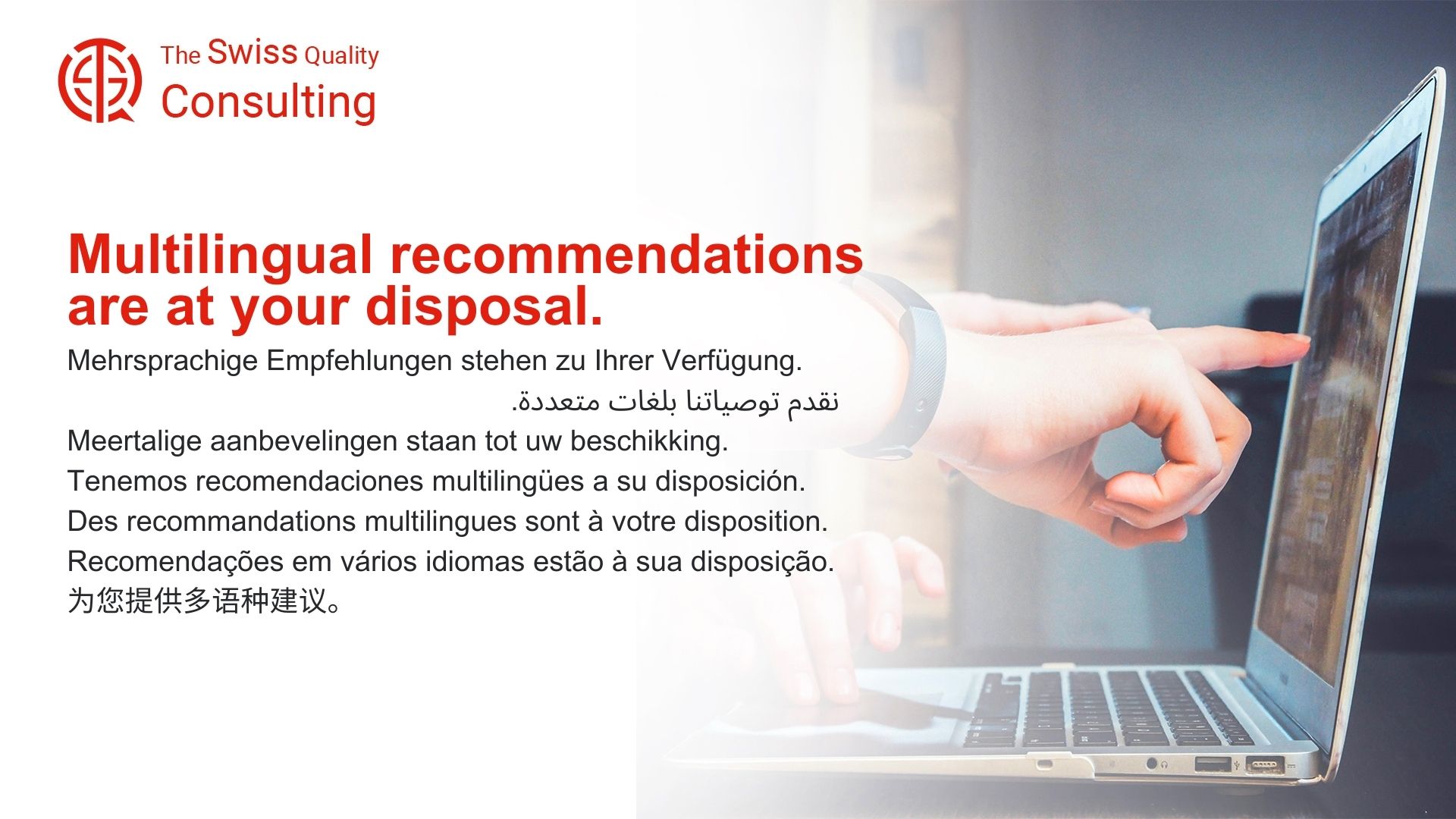Optimizing ERP Solutions for Multilingual Teams in Swiss Corporates
Streamlined Communication Across Languages
The use of ERP solutions for multilingual teams has become increasingly crucial in the diverse corporate environment of Switzerland, where multiple languages such as German, French, Italian, and English are commonly spoken. Effective communication is at the heart of any successful business operation, and ERP systems are instrumental in bridging language gaps among team members. By providing real-time data and centralized communication tools, ERP solutions ensure that all employees, regardless of their language, have access to the same information and resources.
ERP systems can support multilingual functionalities by offering interfaces in various languages and enabling the translation of key documents and data fields. This feature reduces misunderstandings and errors that can arise from language barriers, facilitating smoother interactions between team members from different linguistic backgrounds. Additionally, having a unified platform helps standardize communication protocols across the company, making it easier for multilingual teams to collaborate effectively. For Swiss corporates, leveraging ERP solutions to streamline communication is not just a convenience but a strategic advantage in a multilingual business landscape.
Centralized Management of Multicultural Teams
Managing multicultural teams presents its own set of challenges, including differences in work culture, communication styles, and expectations. Swiss corporates often employ talent from diverse cultural backgrounds, and effectively managing these teams requires tools that can accommodate and respect these differences. ERP solutions for multilingual teams provide centralized management capabilities that allow businesses to oversee operations and workflows uniformly, regardless of cultural differences.
ERP systems offer features such as customizable workflows, task automation, and standardized processes that can be adapted to suit various cultural norms and practices. This flexibility ensures that all team members can work within a framework that aligns with their cultural expectations while maintaining overall organizational consistency. Moreover, ERP systems provide insights into team performance and project progress, enabling managers to identify and address any cultural or language-related challenges promptly. By utilizing ERP solutions, Swiss companies can foster a more inclusive work environment that values diversity while maintaining high levels of efficiency and productivity.
Enhanced Collaboration Through Integrated Platforms
Collaboration is a key factor in the success of multilingual and multicultural teams, and ERP solutions play a pivotal role in enhancing collaborative efforts within Swiss corporates. With integrated platforms that bring together various business functions such as HR, finance, and project management, ERP systems provide a holistic view of the organization’s operations. This integration allows team members from different departments and linguistic backgrounds to work together more effectively, sharing information and resources without language barriers impeding their progress.
ERP solutions facilitate collaboration by offering features like shared dashboards, collaborative project management tools, and real-time data access. These features help teams stay aligned on project goals and timelines, regardless of their language or cultural differences. Additionally, ERP systems can support multilingual customer service modules, enabling teams to provide better support to clients across different regions and languages. For Swiss corporates, the ability to enhance collaboration through ERP solutions not only improves internal efficiency but also strengthens their position in a competitive global market.
Strategies for Effective Implementation of ERP Solutions for Multilingual Teams
Customizing ERP Systems to Fit Multilingual Needs
Implementing ERP solutions that cater to the needs of multilingual teams requires careful customization to ensure that all linguistic requirements are met. For Swiss corporates, this means selecting ERP systems that offer multilingual support and tailoring them to match the specific languages used within the organization. Customization can involve setting up user interfaces in multiple languages, configuring automated workflows to accommodate different linguistic preferences, and ensuring that all critical business documents are available in the necessary languages.
During the implementation phase, it is crucial to involve stakeholders from all language groups within the company to provide input and feedback. This inclusive approach ensures that the ERP system is not only technically sound but also user-friendly for employees from diverse linguistic backgrounds. Additionally, Swiss corporates should consider ongoing language support and updates to the ERP system, ensuring that it continues to meet the evolving needs of the business and its multilingual teams.
Training and Change Management for Multicultural Teams
Successful ERP implementation goes beyond the technical setup; it involves preparing the organization’s workforce to adapt to new systems and processes. For Swiss corporates managing multilingual and multicultural teams, training and change management are critical components of a successful ERP rollout. Employees need to be trained not only on how to use the ERP system but also on how to leverage its features to enhance communication and collaboration across language barriers.
Training programs should be tailored to address the specific needs of multilingual teams, with materials and sessions available in the primary languages spoken within the company. This approach ensures that all employees have a clear understanding of the ERP system and can use it effectively in their daily work. Moreover, incorporating cultural training alongside ERP instruction can help teams better understand each other’s communication styles and work preferences, further enhancing the system’s impact on team dynamics.
Leveraging Analytics for Improved Team Management
One of the key advantages of ERP solutions is their ability to provide detailed analytics and insights into business operations. For Swiss corporates, leveraging these analytics can significantly improve the management of multilingual and multicultural teams. ERP systems can track various performance metrics, such as project progress, employee productivity, and resource utilization, allowing managers to identify trends and areas for improvement.
By analyzing data on team interactions and project outcomes, Swiss companies can gain a deeper understanding of how language and cultural factors impact their operations. This insight enables managers to make informed decisions on resource allocation, team composition, and communication strategies, ultimately leading to more effective management of multilingual teams. Additionally, ERP analytics can highlight any potential issues related to language barriers, enabling proactive measures to address these challenges before they affect the overall performance of the team.
Conclusion
For Swiss corporates, the effective management of multilingual and multicultural teams is essential in today’s globalized business environment. By leveraging ERP solutions specifically designed to address language and cultural challenges, companies can streamline communication, centralize management, and enhance collaboration among diverse teams. Implementing customized ERP systems, investing in targeted training programs, and utilizing analytics for continuous improvement are key strategies that Swiss businesses can employ to maximize the benefits of ERP solutions for their multilingual workforce. As a result, these companies can not only improve internal efficiency but also position themselves as leaders in a competitive and diverse market.
—
#ERPSolutions #MultilingualTeams #SwissCorporates #TeamManagement #BusinessEfficiency #DigitalTransformation #ERPImplementation #CulturalDiversity










